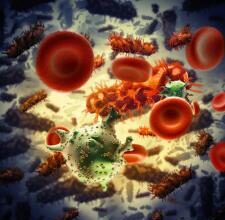Practice guidelines help physicians and other health care providers deliver consistent and information-based medical advice to their patients. But health care is changing radically: Genomic testing costs dipping below $2,000, patients and consumers accessing information over the web and even ordering tests for themselves, and the general awareness of genetic information in treatment decisions, are all factors at the base of this sea of change.
Practice guidelines help physicians and other health care providers deliver consistent and information-based medical advice to their patients. But health care is changing radically: Genomic testing costs dipping below $2,000, patients and consumers accessing information over the web and even ordering tests for themselves, and the general awareness of genetic information in treatment decisions, are all factors at the base of this sea of change. These dynamics are leading to greater consumer demand for this personalized genomic information, and possibly to consideration of health care options based on that information.
How do we balance guidelines focused on standardizing physician behavior with individual consumer demands for testing?
A new study at Brigham and Women’s Hospital and the University of Michigan has begun to plumb the depth of this new consumer interest in genomics. The Personal Genomics (PGen) study is one of the first interdisciplinary inquiries to examine why people want genomic testing now. It will survey 1,000 volunteers. Then, physicians, scientists, attorneys, genetic counselors, psychologists and bioethicists – many of whom hope the study will guide public policy and business practices in this area – will analyze the results.
Knowing what is in your genome can empower patients, further reinforcing their role as “consumers of health care.” This new power, then, would – in theory – drive their demand for more tailored care. Earlier studies found that the earliest adopters of genetic testing were simply satisfying a vague curiosity; today, however, we do not know precisely why subsequent waves of consumers are interested in testing.
As life science industry strategists who are also healthcare professionals and consumers, we at Popper and Company are wondering whether the rise of the empowered consumer will or will not be accompanied by a commensurate with a rise in consumer knowledge of genetics. We are also thinking about how this new consumer will interact with potentially less information-empowered health care providers, and how this interaction might impact health care delivery within current care guidelines and standards and the historic doctor-patient relationship.
How well are consumers internalizing the information provided by genomic tests? Why are they demanding it, and what are they looking for? How can physicians weave this new demand into their practice? How can a win-win situation be created? How do physicians and patients become comfortable with concepts of “relative risk” and “probability”? What opportunities and responsibilities for a broad education do test developers bear? What does all of this mean to those of you developing the tests? Are the disciplines of human behavior, biology and assay development about to converge? Share your thoughts with us.
This post was originally published on the Popper and Co blog.







